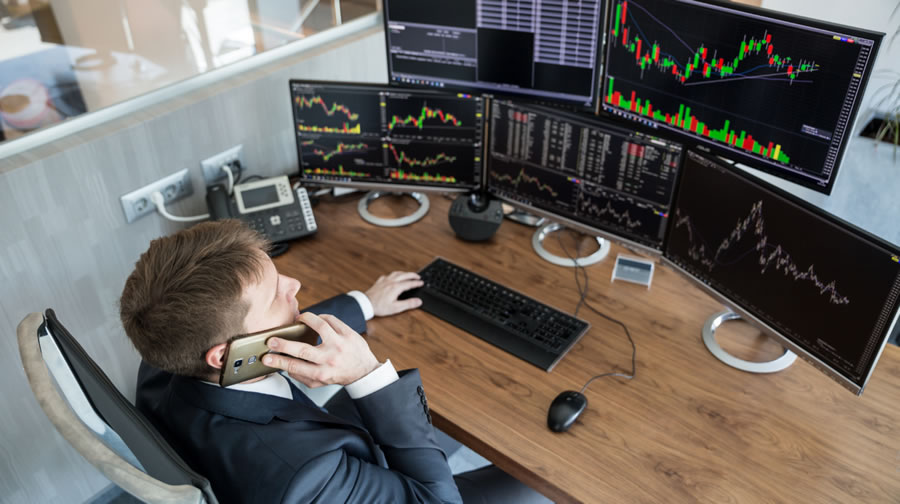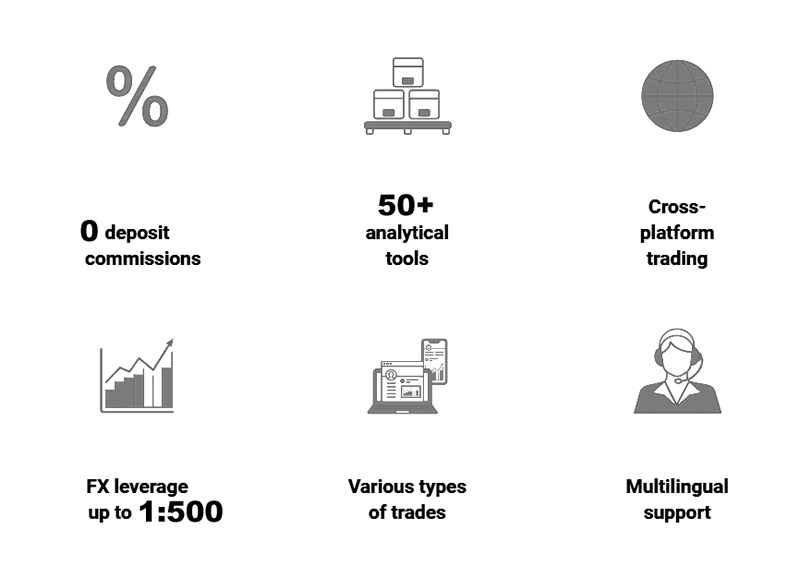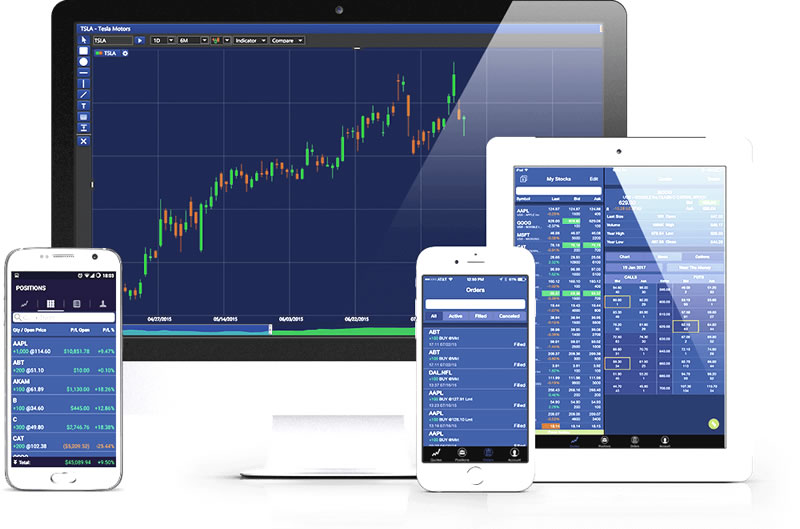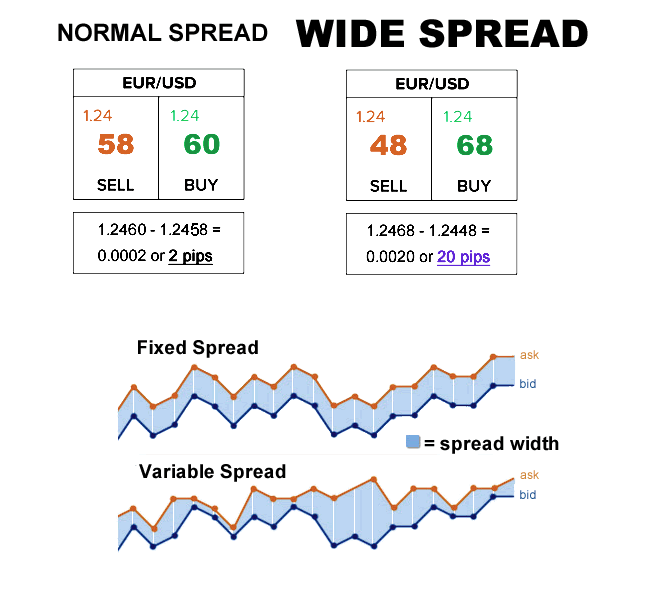
Currently, there is a large number of online brokers who provide their services to investors from all over the world, and the number of these brokers is growing all the time.
Identifying the distinctions between them and determining how to select the most appropriate online broker is getting increasingly challenging, particularly for newcomers. In this post, we will attempt to clarify which elements are the most important to consider when selecting the finest online broker to invest with.
1. The dependability of the broker is important
A dependable organisation is the most crucial aspect to consider when selecting an online broker, according to our standards of evaluation. The online broker will be in charge of receiving our funds and using them to carry out the transactions that we request on our behalf. Therefore, it is critical to select a serious, transparent, and professional broker to help you with your investment.
In order to determine the dependability of a broker, we must first determine whether or not the broker is regulated and which regulatory agency is in charge of overseeing it. The fact that a broker is licenced does not immediately imply that it is a trustworthy entity.
Regulation of a broker involves a set of standards that are designed to safeguard investors, provide financial stability and security of funds, and ensure that the broker markets its products and services correctly and transparently while still growing and developing his or her business.
Another extremely important method of determining the dependability of an online broker is to consult the opinions of previous clients, which we can readily find in forums, comments on blogs, and web pages.
Remember when evaluating these opinions that it is much easier for someone to publish negative opinions of a broker in the face of a bad experience (which is often caused by their ignorance) than it is to find positive opinions. However, it is still useful to see many times common patterns of behaviour and practises that the broker typically performs when evaluating these opinions.

2. The minimum deposit, the maximum trade size, and the amount of available leverage
Along with dependability, when selecting the finest online broker to invest with, we must ensure that their terms and conditions are compatible with our financial circumstances.
Online brokers may provide one or more trading accounts to their customers. They allow you to open many accounts because each one generally enhances the trading circumstances of the previous ones. However, this is usually done in exchange for a greater minimum initial deposit requirement.
If a broker requires a deposit of €10,000 before you can begin investing and you do not have that amount, you can move on to the next broker; however, the deposit is not generally an issue at the moment because most brokers allow you to begin investing with deposits as low as € 100 or even less. Of course, the greater the amount of money you have to invest, the more probable it is that you will be able to obtain better terms.
3. The investment tools, trading platforms, and methods that are available to investors
This sequence of considerations, similar to the ones we covered in the previous paragraph, is aimed at helping us select the online broker that best suits our operating style. A critical component in this regard is the fact that the broker provides the opportunity to invest in the financial instrument or instruments that we are interested in (Forex currencies, raw materials, precious metals, CFDs, stocks, indices, energies, futures, ETF, etc.)
Another extremely significant element to consider is the trading platform on which we intend to place our money. Though maximum simplicity of the platform may be the most important factor for a beginner in order to learn how to invest and take their first steps, for a more experienced trader, it may be necessary to consider other factors such as the available functionalities, speed, instruments to help you analyse the market and make your trading decisions, and other factors.
Brokers that cater to novices are more likely to offer their own trading platforms, whilst brokers that cater to more experienced clients are more likely to offer powerful platforms such as MetaTrader 4, MetaTrader 5, cTrader, and so on.

4. The manner in which the broker executes his transactions
When selecting an online broker, it is important to consider the type of execution that the broker offers. Essentially, we may categorise online brokers into two groups based on the types of orders they execute: (1) those who execute orders in real time and (2) those who do not.
Market Maker-type brokers (also known as “market makers”) are those in which operations are not carried out directly in the market, but rather at the broker’s own trading desk, rather than in the market at large (Dealing Desk). The market maker acts as a broker.
Customers can purchase and sell at any time without having to wait for a reverse operation to complete the transaction, as they have created an internal market for themselves. In the event that the broker is unable to locate the reverse operation, the broker will function as the counterparty to the transaction. Consequently, there may be a potential conflict of interest between the broker and its clients in the majority of instances.
Since this activity is time-sensitive and complex, it is extremely important for Market Makers to collaborate with trusted, regulated, and experienced brokers.
We may discover this type of broker in the vast majority of cases; however, among those that also provide direct execution in the market, there are also some who offer their most basic trading accounts that function as Market Makers. The primary advantage of market makers is that they are typically available to execute transactions at the earliest opportunity, without the need for price requotes and with more consistent quotes. As a result, they may be more suitable for beginners or for trading techniques that benefit from these benefits than others.

5. Spreads and commissions
Previously, we discussed how spreads can vary significantly depending on the type of broker (market maker or ECN) and for each investment instrument (for example, spreads for currencies do not always remain the same, and can even differ depending on whether it is a pair of currencies with high or low trading volume), and how spreads change in the case of stocks, raw materials, and other commodities.
In order to choose the best broker for you, you should look at the terms and conditions of each broker and compare them to those of the others. This is especially important if you intend to invest in a certain product. If you are a newbie, it is more important that you pay attention to the rest of the aspects that we have discussed than focusing on finding the broker with the lowest spread.
Please keep in mind that there are some brokers who can charge a small additional commission on trades that are larger than the spread. In addition, you will find brokers who deal with fixed spreads, brokers who work with variable spreads, and brokers who, depending on the trading account, offer either fixed or variable spreads.
6. Checking the customer service and demo account
Another highly frequent method of evaluating an online broker’s trading platform and trading conditions is to first open a demo account with the broker. Most brokers provide free demo accounts with simulated money so that you can practise trading without risking any of your actual money on the deals.
Sometimes these demo accounts can be used for an indefinite period of time (allowing you to use them to become comfortable with the trading platform and later to test new techniques), while other times they are only available for a fixed period of time (such as 30 days).
